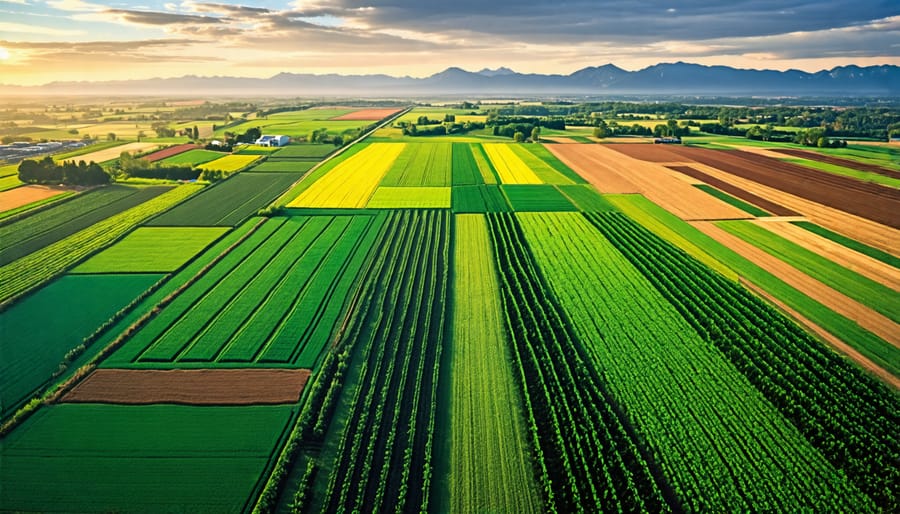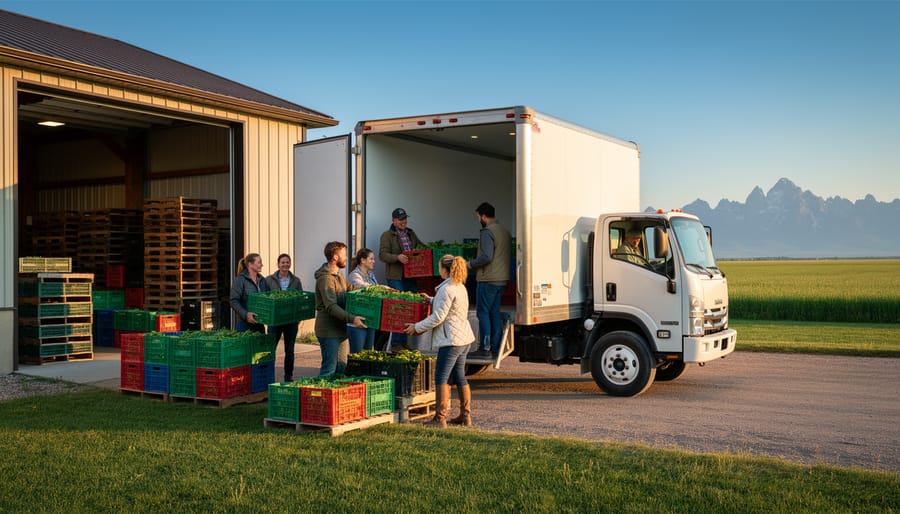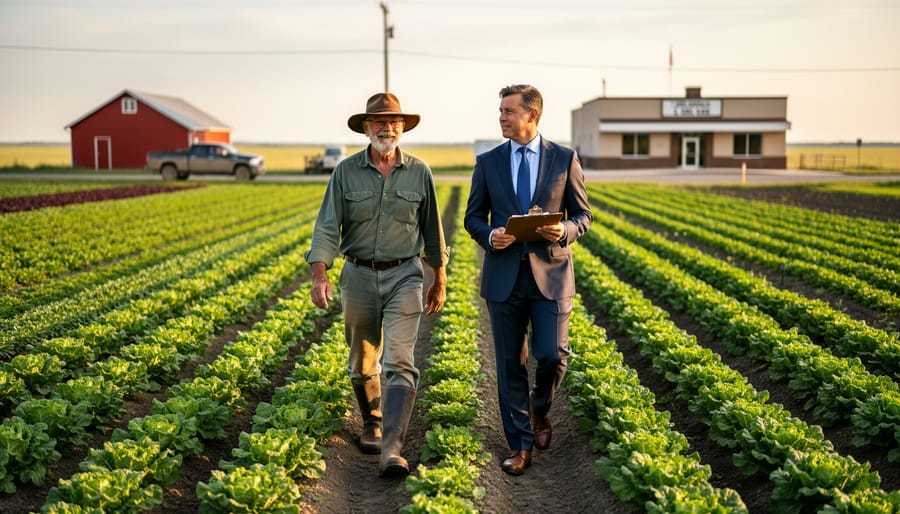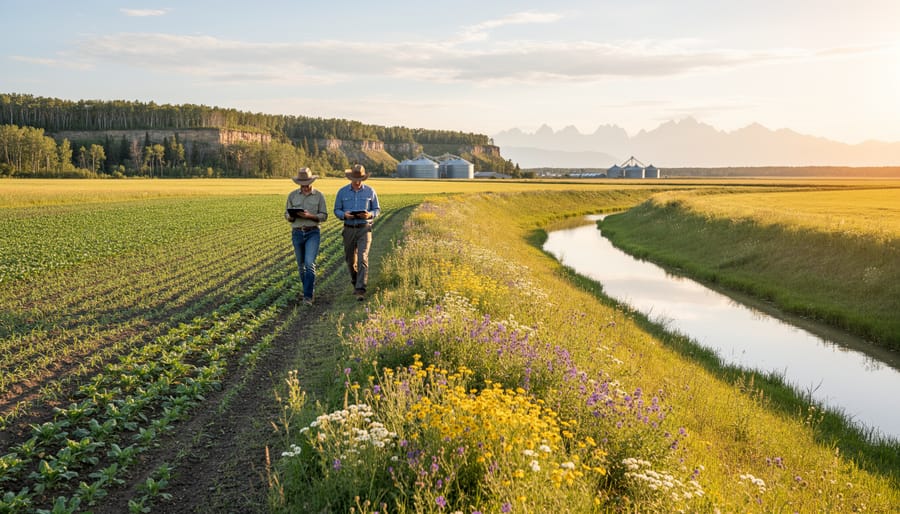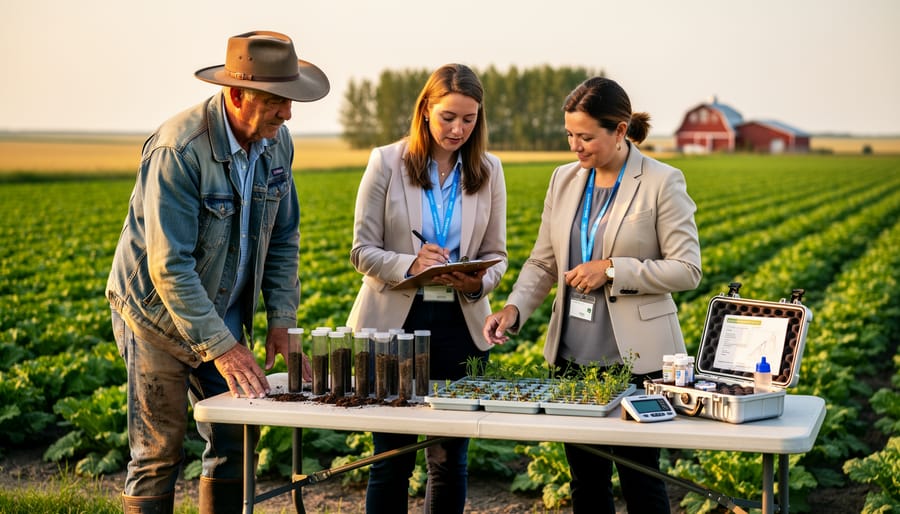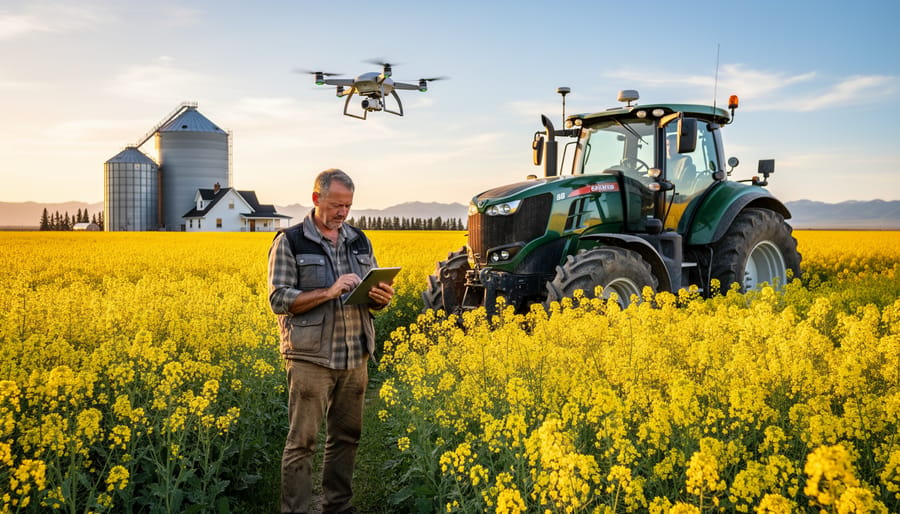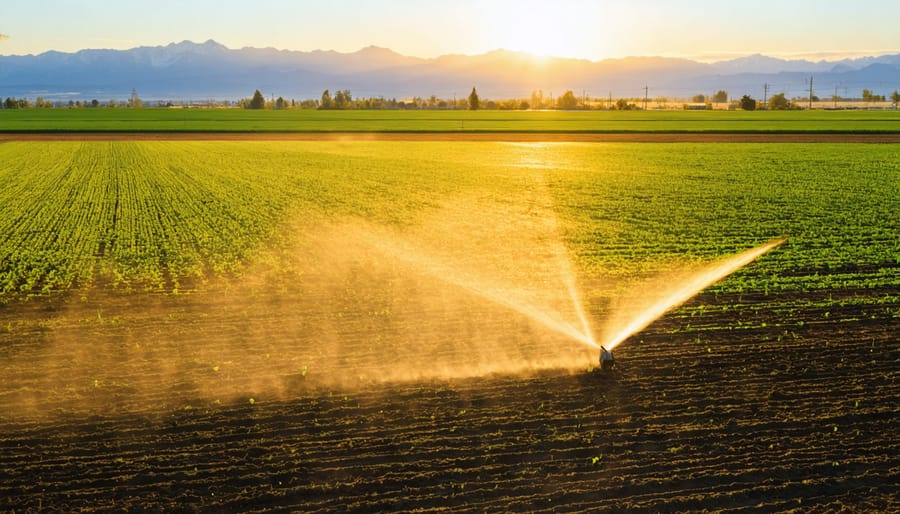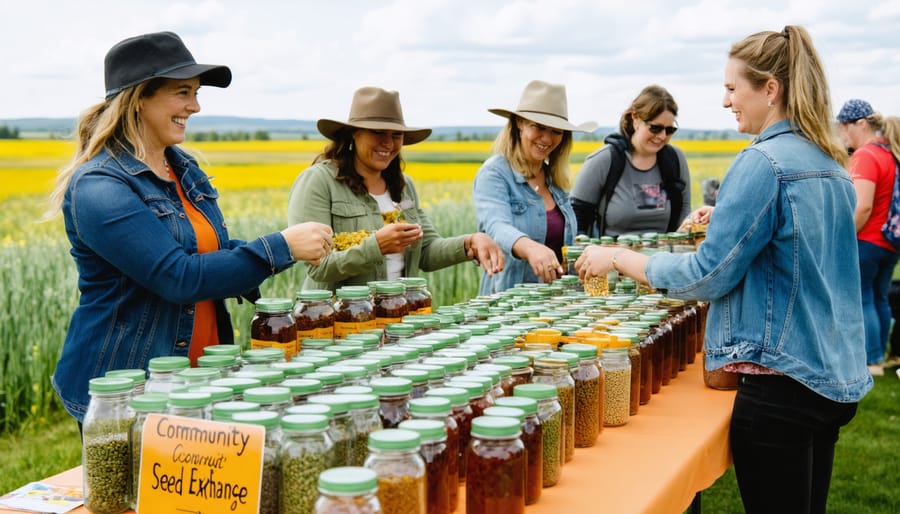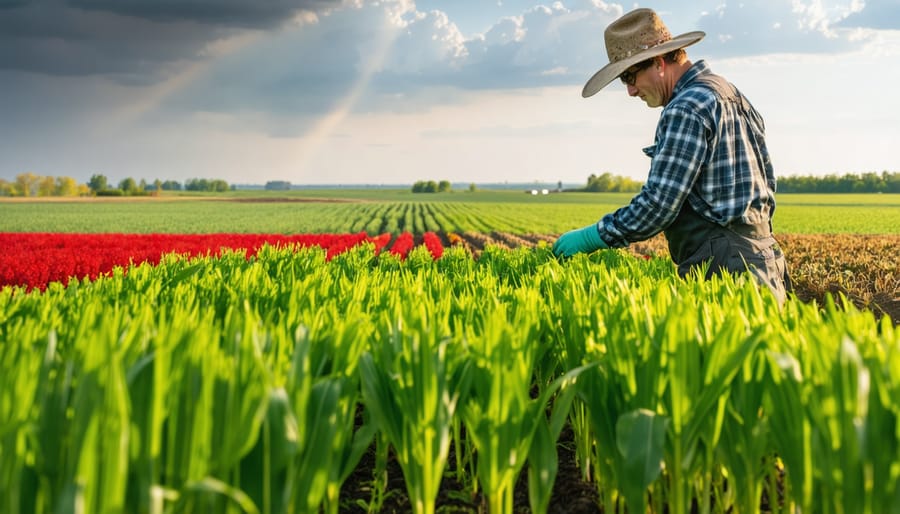Adopt crop rotation practices to improve soil health and break pest cycles. Conduct a detailed soil analysis to determine nutrient needs and select organic fertilizers accordingly. Build relationships with experienced organic farmers through local networks or associations for shared knowledge and support. Learn more about the organic transition in Alberta by exploring real cases and expert recommendations.
Understanding the Organic Transition Initiative
Key Objectives
The Organic Transition Initiative is strategically designed to address critical environmental and economic needs, prioritizing three key objectives that resonate with the agricultural community in Alberta. Firstly, it aims to significantly reduce the carbon footprint of farming practices. By transitioning to organic methods, which typically exclude synthetic fertilizers and pesticides, emissions can be minimized, contributing to a healthier planet. Secondly, enhancing soil health is paramount. Healthier soil leads to more robust crops and increased biodiversity, helping to secure the agricultural landscape for future generations. Implementing practices such as crop rotation and composting not only improve soil structure but also increase its ability to retain water, a crucial factor in Alberta’s diverse climate. Lastly, the initiative seeks to boost economic opportunities for rural communities. By opening access to premium organic markets, farmers can enhance their income and resilience, fostering a vibrant agricultural economy. This initiative not only supports farm-level improvements but also strengthens the broader rural economy, encouraging community development and sustainability.
Stakeholders Involved
The Organic Transition Initiative thrives on the collaborative efforts of a diverse set of stakeholders. Farmers, at the heart of this endeavor, drive the transition by adopting organic practices and sharing insights from their experiences. In the Alberta region, where agricultural innovation is prevalent, farmers are supported by agricultural experts who bring a wealth of knowledge in soil health, crop rotation, and pest management tailored to local conditions. These experts offer workshops and guidance to ensure a smooth transition to sustainable farming methods.
Environmental scientists play a key role by analyzing the ecological impact of organic farming, ensuring that practices not only yield thriving crops but also maintain biodiversity and soil integrity. They work hand-in-hand with farmers to develop strategies that foster sustainable landscapes. Community organizations and local government bodies also contribute by providing resources and policy support aimed at creating a robust framework for organic transition. These partnerships build a supportive network, empowering farmers to make informed choices and contribute to a sustainable future in Canada’s agriculture.
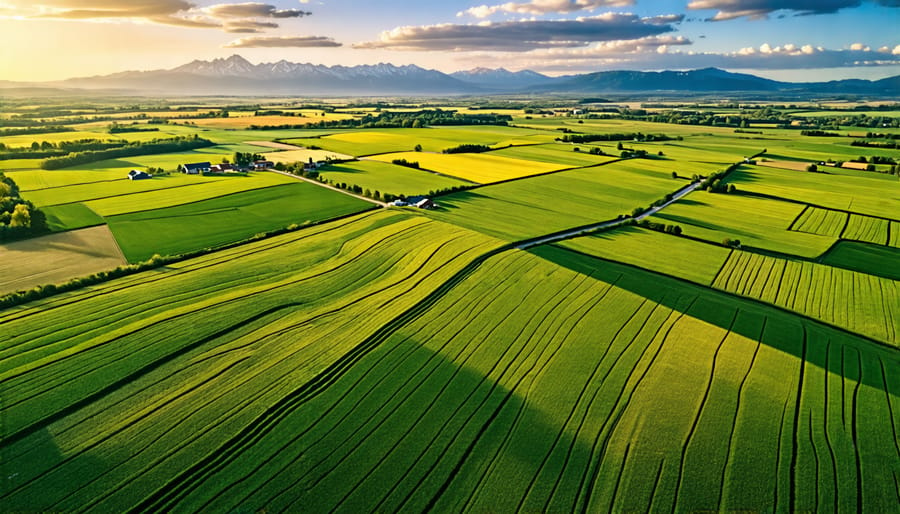
Benefits for Alberta Farmers

Economic Gains
Transitioning to organic farming presents significant economic opportunities for Alberta farmers. It can enhance farm profitability by reducing dependency on costly chemical inputs like synthetic fertilizers and pesticides. By investing in organic practices, farmers access premium market prices, which often surpass those of conventional produce. This price premium can offset the potentially lower yields during initial transition phases, ensuring economic viability. Additionally, organic certification opens doors to new markets, both locally and internationally, catering to the growing consumer demand for sustainably produced food. The Organic Transition Initiative further bolsters these efforts by offering financial support and resources, minimizing transition risks, and facilitating the adoption of organic solutions tailored to Alberta’s climate and soil conditions. Engaging with programs like these positions farmers to benefit from the $8.4 billion organic market in Canada, fostering long-term resilience and profitability. By embracing organic practices, Alberta farmers can lead the way in sustainable agriculture while reaping substantial economic rewards.
Environmental Benefits
Transitioning to organic farming offers significant environmental benefits that can boost both crops and planet. A primary advantage lies in enriched soil health. By eliminating synthetic pesticides and fertilizers, farmers enhance soil microorganisms, leading to better nutrient cycling and water retention. This change not only supports robust crop yields but also helps in combating soil erosion, a concern for many Alberta farmers. Additionally, organic practices promote biodiversity. By fostering diverse plant species and creating wildlife-friendly environments, organic farms support a balanced ecosystem where beneficial insects and natural predators thrive. This approach reduces pest outbreaks, ultimately benefiting crop health and farmer productivity. Research from Canadian agricultural studies supports these outcomes, showing healthier pollinator populations and increased yield biodiversity. As shared by expert interviews, the organic transition not only preserves natural resources but also aligns with the sustainability goals crucial for future farming resilience in Alberta.
Steps to Begin Your Organic Transition
Initial Assessment
Assessing farm readiness for the Organic Transition Initiative begins with a detailed analysis of current farming practices, soil health, and crop management. Alberta farmers should first evaluate their existing resources and identify areas requiring change to align with organic standards. It’s beneficial to consult with agricultural professionals and those who have undergone the process. Planning should include setting realistic timelines and goals, understanding organic certification requirements, and estimating financial investments. Engaging with local organic farming communities and considering insights from Canadian agricultural case studies can provide valuable support and motivation. For a successful transition, preparing a comprehensive, flexible plan and remaining adaptable to new learning opportunities is essential.
Accessing Resources
Accessing resources during your transition to organic farming can significantly ease the journey and set you up for success. For Alberta farmers and those across Canada, a variety of grants and educational supports are available. Government and regional programs often provide financial assistance to organic farmers seeking to build infrastructure or improve soil health. Look into local workshops, which not only offer hands-on learning but also the chance to network with fellow farmers and industry experts. These workshops cover topics like soil management, pest control, and certification processes. Additionally, online platforms offer a wealth of educational materials, from webinars to in-depth guides. For tailored support, explore partnerships with agricultural institutions that provide consultations and resources. Discover ways to leverage these initiatives by checking out this assistance to organic farmers resource, which provides a comprehensive list of available support. By utilizing these resources, you can confidently navigate the steps towards organic farming, backed by a community committed to sustainable practices.
Success Stories: Canadian Agricultural Case Studies
Case Study 1: Grain Farm Transformation
Nestled in the heart of Alberta, a once-conventional grain farm embarked on a journey towards sustainability through the Organic Transition Initiative. This transformation involved adopting organic methods, eliminating synthetic pesticides, and enhancing soil health. The farm’s story serves as a beacon for regional farmers navigating similar paths.
The transition began with soil testing to assess nutrient levels, followed by introducing crop rotations and cover crops to nurture the earth naturally. By cultivating a diverse range of grains, the farm not only improved biodiversity but also bolstered its ecosystem’s resilience. Expert guidance was crucial, with local agronomists offering insights on organic pest management techniques.
Throughout the process, the community played a pivotal role. Shared experiences and support networks assisted the farm in overcoming challenges, proving that transformation is achievable with collective effort. This success story highlights the viability of organic farming, encouraging more Alberta farmers to embrace sustainable agriculture.
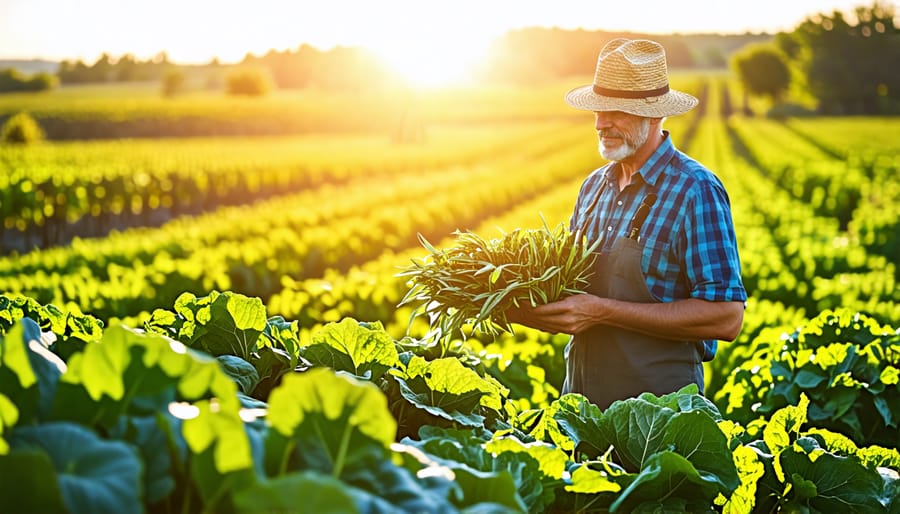
Case Study 2: Dairy Farm’s Journey
Located in Alberta, Green Pastures Dairy Farm embraced the Organic Transition Initiative to meet growing demands for sustainable dairy products. The farm’s journey began with converting feed production to organic standards, emphasizing crop rotation and natural pest management. This shift not only improved soil health but also enhanced the quality of the forage. With support from local experts and through engaging in workshops, the farm focused on learning best practices for livestock health, eschewing synthetic hormones and antibiotics in favor of natural remedies and preventative care. Community collaboration played a crucial role; sharing experiences fostered motivation and resilience among neighboring farms. Green Pastures is now a model for others in Alberta, proving that with dedication, the rewards of organic farming are both viable and worthwhile.
Expert Insights: Interviews with Agricultural Professionals
Interview Highlight 1
In our conversation with Janice Thompson, an experienced agricultural consultant prominent in the Organic Transition Initiative, key insights emerged outlining the initiative’s practical application for Alberta farmers. Janice emphasized the significant role of community support and knowledge sharing, underscoring that transitioning to organic farming is a collective endeavor rather than an individual pursuit. She highlighted tangible benefits such as healthier soil, enhanced biodiversity, and potential access to new markets that reward sustainable practices. Janice also pointed out that while there are initial challenges, including the need for new skills and patience during the transition period, farmers often find long-term gains in yield stability and reduced input costs. Her insights reaffirm the initiative’s potential to foster resilience and sustainability within the agricultural sector, significantly benefiting both the environment and local communities.
Interview Highlight 2
When Jason Thompson, a grain farmer from Southern Alberta, decided to transition his 200-acre farm to organic, he faced many challenges but found the process rewarding. The shift began with a detailed soil health plan and crop rotation strategy, crucial for replenishing nutrients without synthetic fertilizers. “It wasn’t easy at first,” Jason admits, highlighting the initial investment in new equipment and training. However, the support he received from local organic networks and the improved market prices for his produce made a significant difference. Within three years, Jason noticed healthier soil and increased biodiversity, factors that contributed to a sustainable farming practice. By sharing his experiences, Jason aims to inspire fellow farmers contemplating a similar path, emphasizing patience and the importance of community support throughout the transition.
Addressing Challenges in Organic Transition
Overcoming Practical Hurdles
Transitioning to organic farming can present practical hurdles like cost, training, and certification. To address financial concerns, investigate government grants or subsidized loans tailored for Canadian farmers. Partnering with other Alberta farms may also minimize expenses through shared resources. Training is crucial, and attending local workshops or online courses can equip you with necessary skills. Engage with Alberta-based organizations offering mentorship, fostering a community of support. For certification, simplify the process by collaborating with certifying bodies and staying updated on regulatory changes. Explore resources about water infiltration to enhance soil health during this transition.
Building Community Support
Engaging the rural community is crucial for a successful organic transition. Start by hosting open forums where farmers can discuss challenges and opportunities in a supportive environment. Utilize local success stories from Alberta to highlight feasible pathways and inspire peers. Collaboration with regional agricultural organizations can provide necessary resources and foster a sense of shared purpose. Leveraging Canada’s strong tradition of community co-ops can also offer financial and logistical support. Expert-led workshops can equip farmers with the skills needed for transitioning, while local initiatives can enhance collective knowledge. Encouraging open communication and participation will strengthen community ties and promote widespread acceptance.
Conclusion
The Organic Transition Initiative offers tremendous opportunities for Alberta farmers to tap into the growing demand for sustainable agricultural practices. By adopting organic methods, farmers can enhance soil health, boost biodiversity, and ultimately increase the market value of their produce. The experiences of numerous Alberta farmers highlighted throughout this article provide compelling evidence of the initiative’s practical benefits. Key steps such as soil management, crop rotation, and organic certification are well within reach, supported by expert insights and community resources. Transitioning to organic farming not only supports environmental goals but also strengthens local economies by opening doors to new markets. As evidenced by inspiring case studies, this initiative fosters a resilient farming community committed to innovation and sustainability. Alberta’s agricultural landscape is uniquely poised to lead this transformative shift, encouraging farmers across the region to embrace these opportunities. The Organic Transition Initiative stands as a beacon for positive change and growth, promising a vibrant future for Alberta’s farming community.

